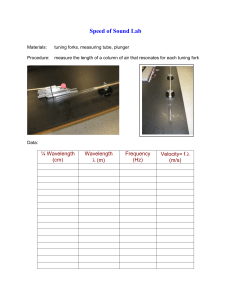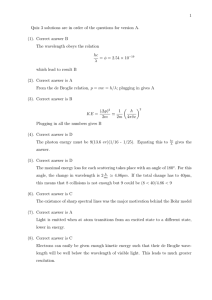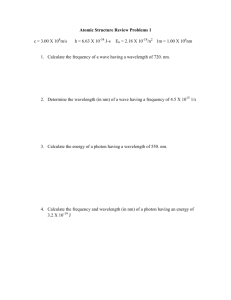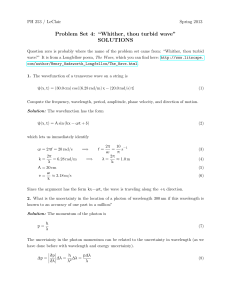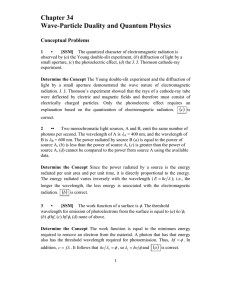“Test Your Knowledge” Problem 1: Solution:
advertisement
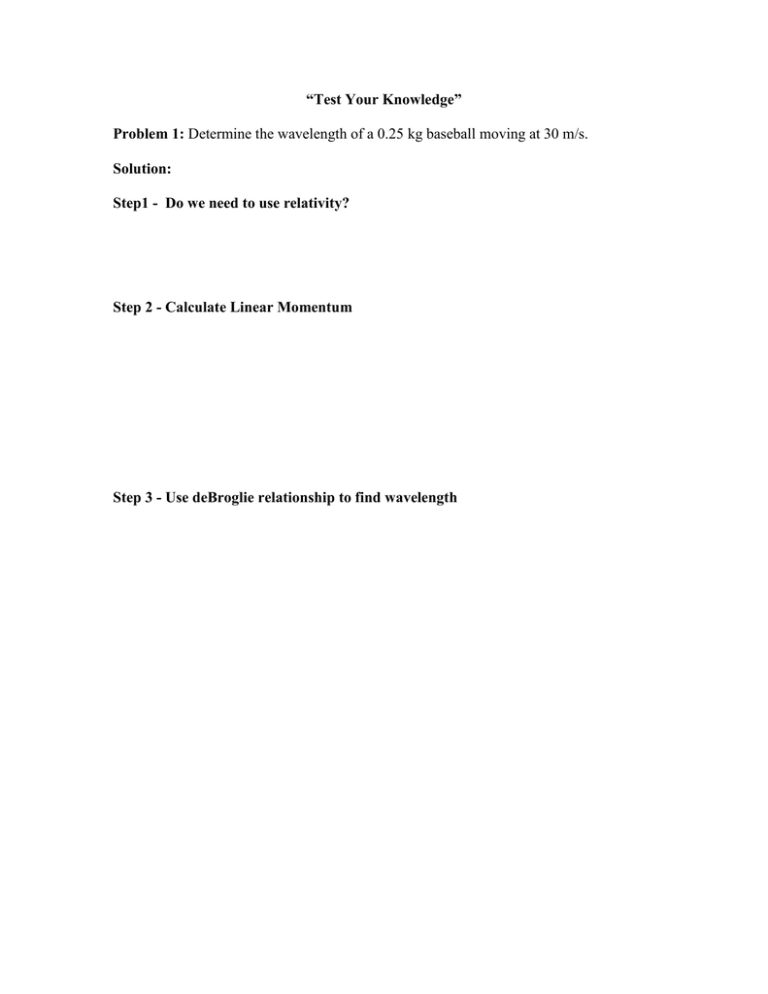
“Test Your Knowledge” Problem 1: Determine the wavelength of a 0.25 kg baseball moving at 30 m/s. Solution: Step1 - Do we need to use relativity? Step 2 - Calculate Linear Momentum Step 3 - Use deBroglie relationship to find wavelength Problem 2: Determine the wavelength of a 2GeV electron from the Stanford Linear Accelerator (SLAC). Solution: Problem 3: Determine the wavelength of a 20 eV electron. Solution: Problem 4: An alpha particle (doubly ionized helium) is ejected from the nucleus of a radium nuclei with 5.78 MeV of kinetic energy. a) What is the de Broglie wavelength of this particle? b) How does this wavelength compare with the nuclear diameter, which is about 2 x10-14 m? Problem 5: The electron in a hydrogen atom moves into the excited state n=2 and remains there for 10-8 s before making a downward transition to the ground state. Calculate the uncertainty of the energy in the state n=2. Is this a significant correction to the Bohr theory prediction of -3.39 eV? Problem 6: We wish to simultaneously measure the wavelength and position of a photon. Assume that our measurement of wavelength gives = 600 nm and that our equipment allows an accuracy of one part in a million in the measurement of .What is the minimum uncertainty in the position of the photon?
